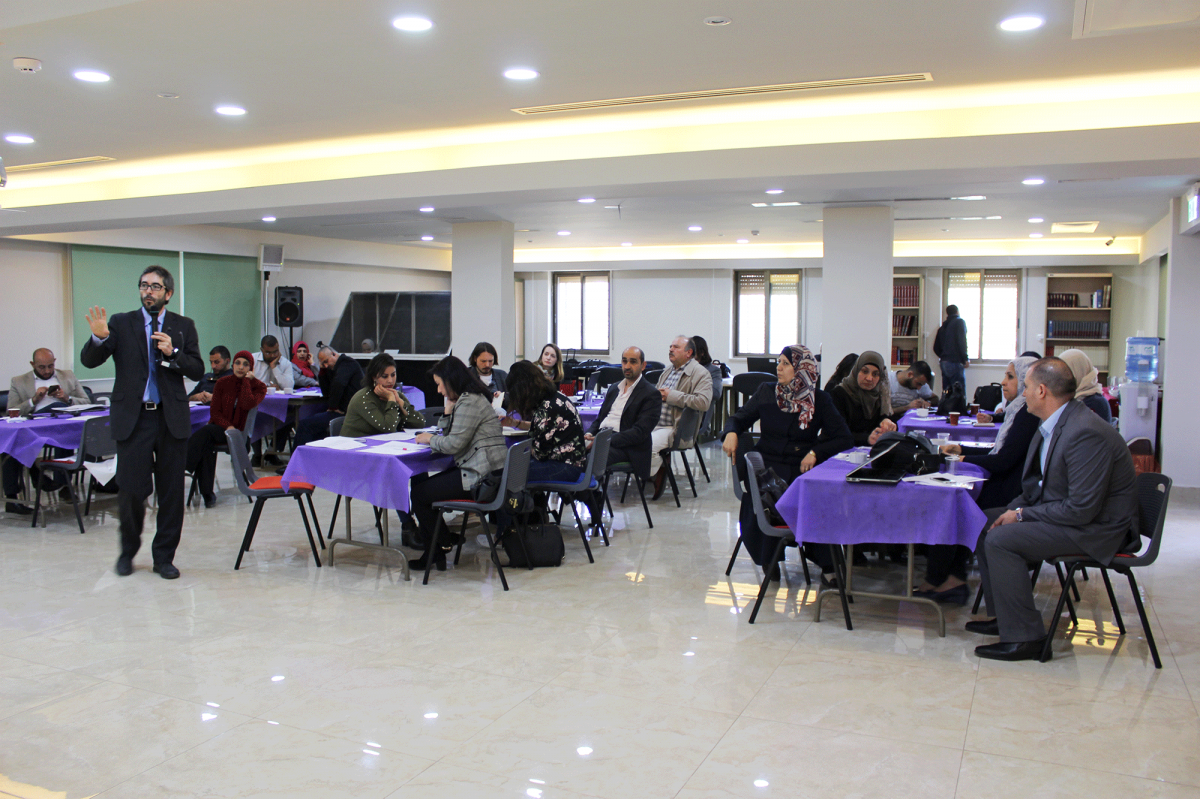First workshop on data collection to support the implementation of a national monitoring and evaluation system for the TVET sector
Based on the work of the Monitoring and Evaluation Technical Working Group, supported by ETF, Enabel and GIZ, a list of indicators to monitor and evaluate the TVET (Technical and Vocational Education and Training) sector in Palestine was developed. The list, which has been approved by the main stakeholders, formed the basis for the creation of a monitoring framework.
The framework looks at the input (e.g. demand for TVET), the output (e.g. number of graduates from the TVET sector) and the quality of the TVET system (e.g. employment rate of the TVET graduates).
In order to implement the new framework, existing monitoring and evaluation processes have to be reviewed to ensure that the necessary data is gathered and analyzed.
As a pilot for 2018, the ETF is supporting the NGO VET League in going through the complete monitoring and evaluation cycle, starting with the data collection of five administrative indicators and one on the employment rate.
"It is important to move from data collection to data analysis so we can identify trends and make the necessary decisions based on those" says Kristien Van den Eynde, the newly appointed ETF country desk for Palestine.
On March 21, 2018, the first of three capacity building workshops, aimed at supporting the NGO VET providers in implementing the pilot, has taken place. The workshops address the topics of data collection, data analysis, result dissemination and informing decision makers.
In his opening speech, Bart Horemans (International Technical Advisor for Entrepreneurship and Job Creation at Enabel), emphasized the need for the system: “A good M&E system is essential to measure the quality of our work. We need to know where we are with TVET in Palestine, what we have done, what we are doing and what we have to do: how many graduates have found a job? Do we offer quality education and training? How many new TVET vocations do we need? Where do we have to extend or build new TVET institutions? What can be improved? are only a few of the questions we need answers to.”
Sabina Gebauer , Head of GIZ TVET and Employment Promotion Programme, highlighted that “M&E of the TVET sector is fundamental for improving TVET, achieving a better qualified work force, diminishing unemployment and contributing to a better performance of the private sector,” she added that “only if we know the results of previous and current training programmes in terms of quality and employment, we can make informed decisions about the best way forward.”
Yousef Shalian, Chair of the VET League emphasized that the NGO VET League is committed to cooperate with the different stakeholders, especially with Ministry of Education and higher Education and the Ministry of Labour, through the TVET Higher council and the TVET development center, to achieve the creation of the M&E system.
On medium term, the system will allow the NGO VET providers to have a source of comparison and a benchmark against which they can monitor their performance.
On the long term, the pilot could be implemented at a national level so that all TVET providers in Palestine can use the same monitoring tools and processes.
Latest news from this project
No news

